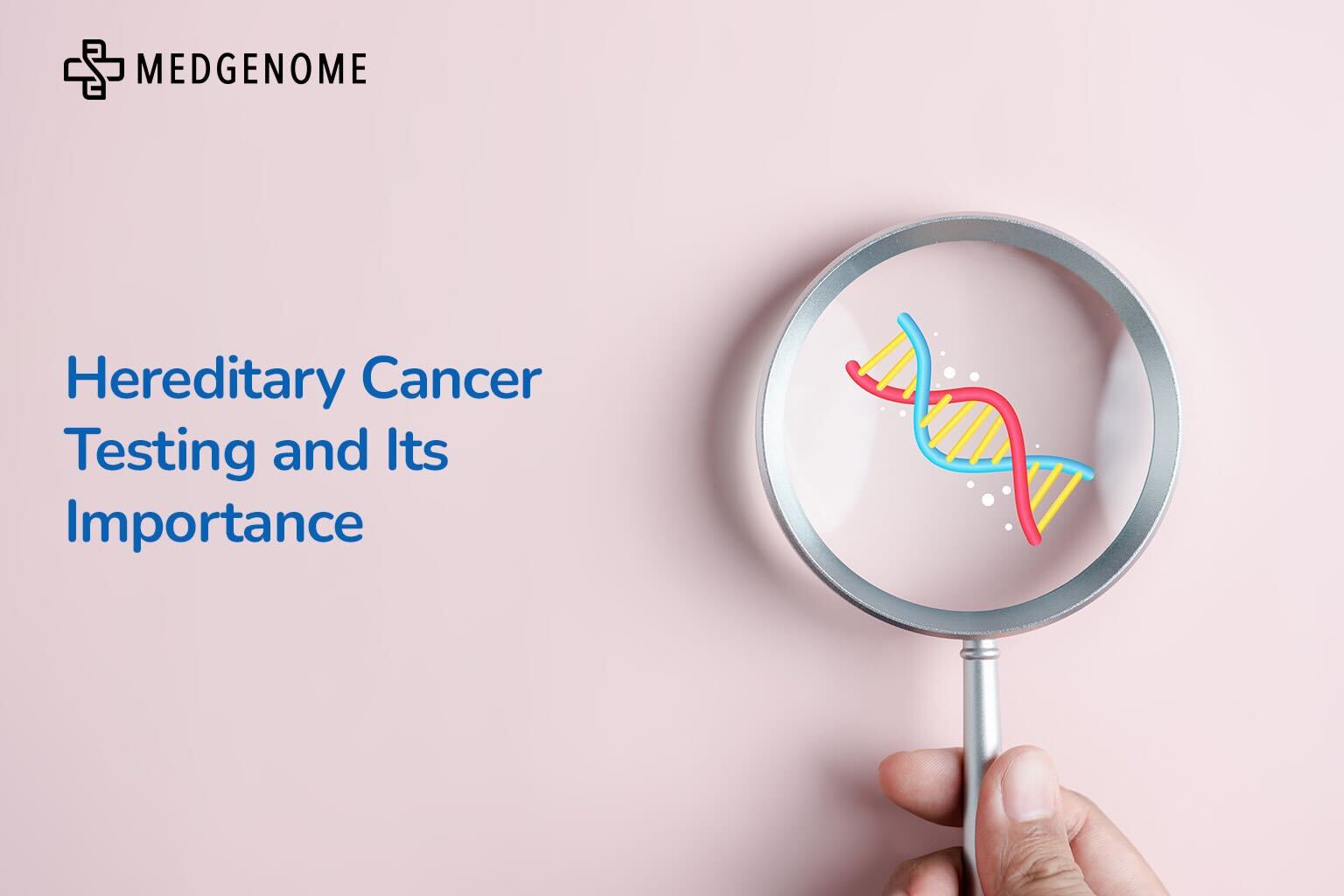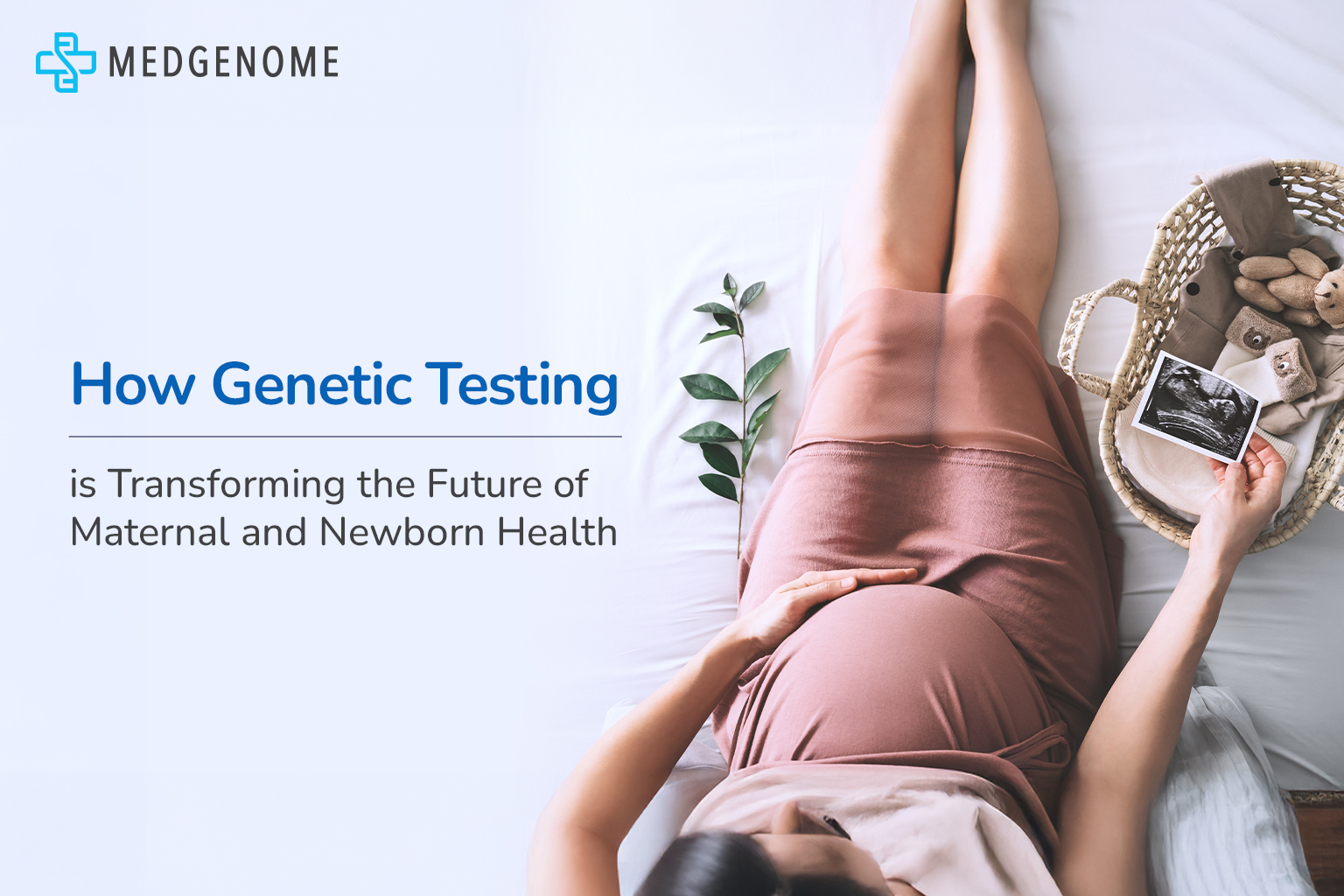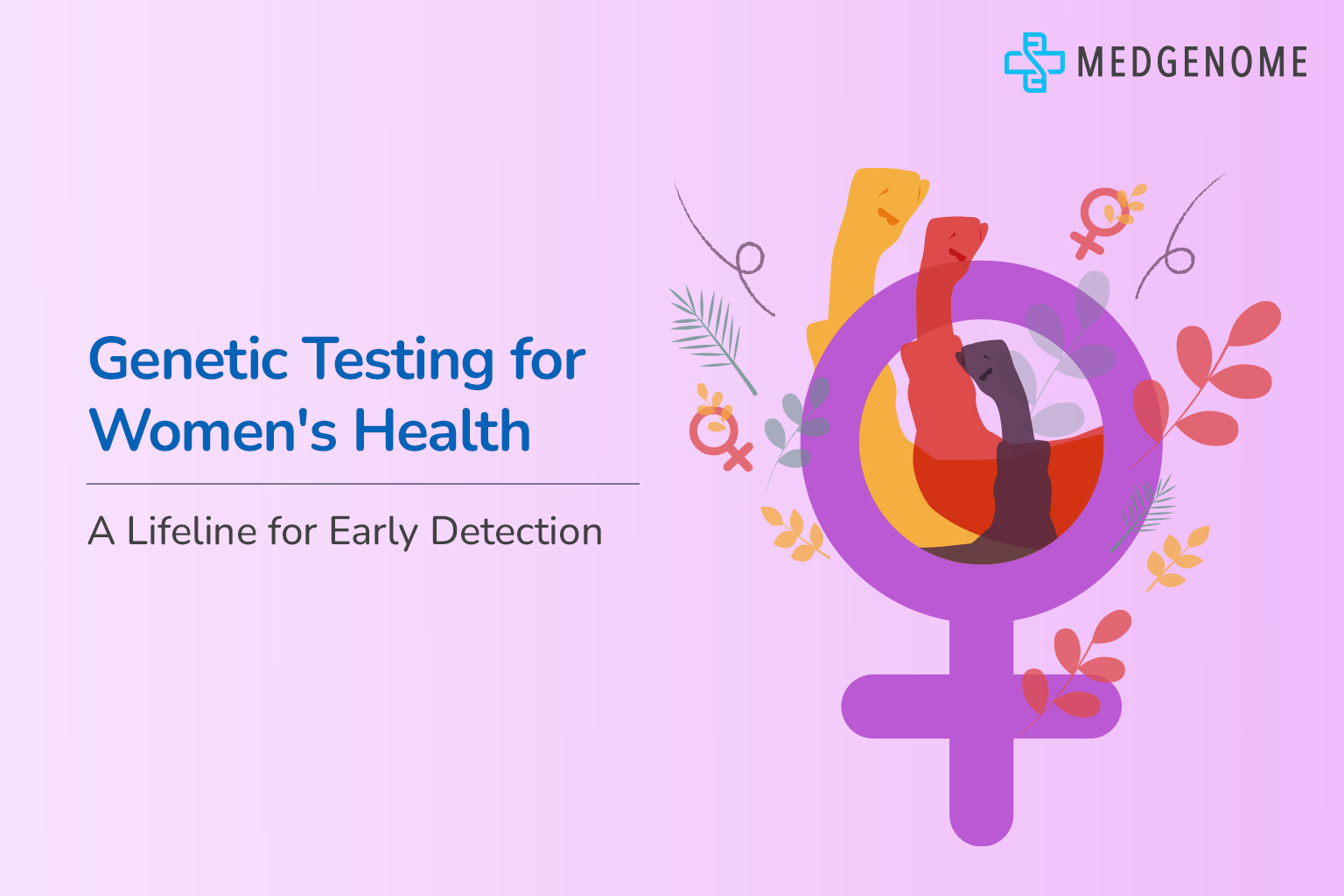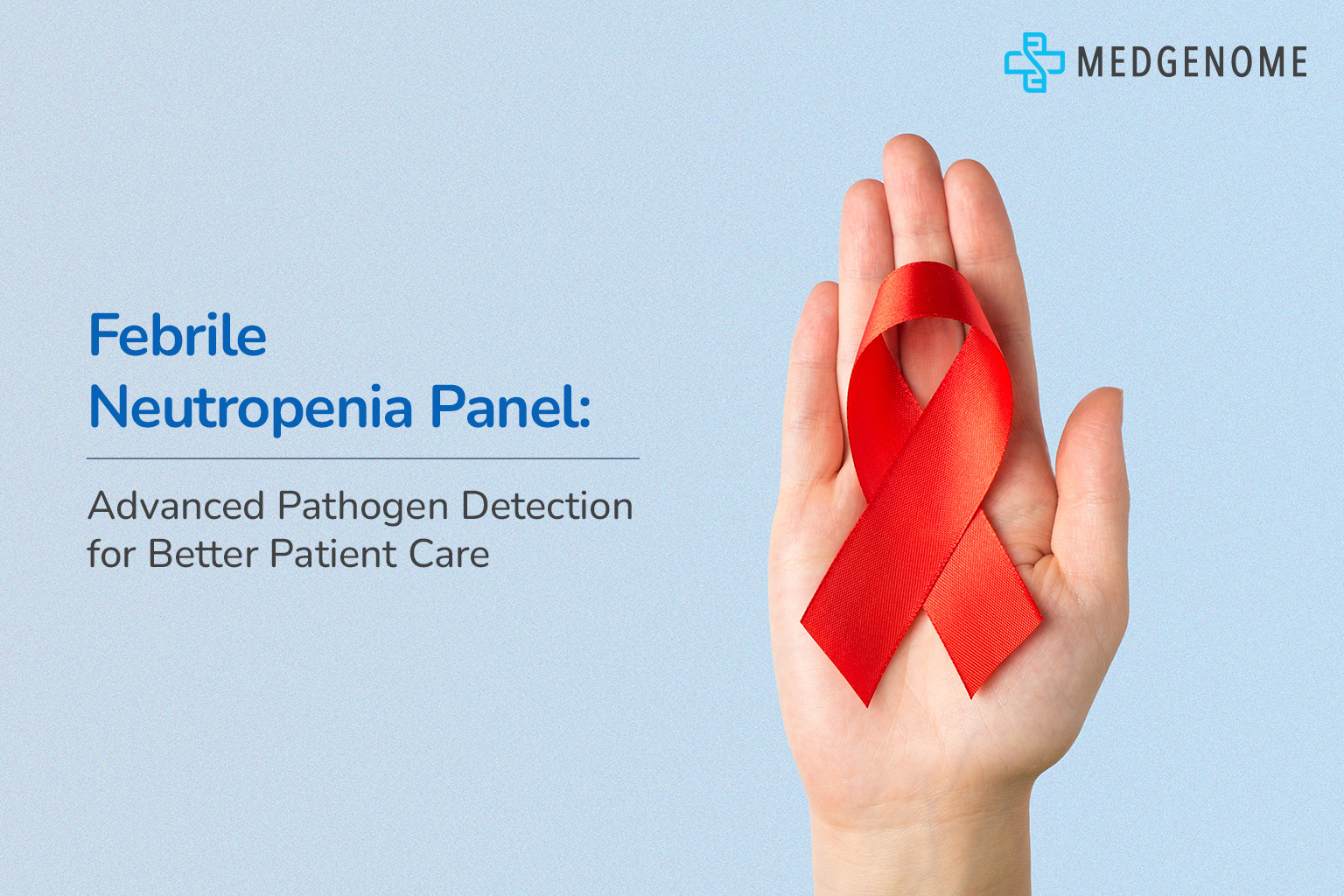Introduction
Ovarian cancer is a severe disease that often goes undetected until its later stages, making early awareness crucial. Many of its symptoms can be subtle or mistaken for common digestive or menstrual issues, leading to delays in diagnosis. However, recognising the early signs of ovarian cancer can significantly help in improving the chances of early diagnosis and effective treatment 1, 2. This blog looks to shed light on the symptoms that should not be ignored and to emphasise the importance of early detection.
Subtle Signs of Ovarian Cancer
Ovarian cancer symptoms often go unnoticed until the disease has progressed. Here are some of the most common signs:
1. Changes in Appetite
A sudden loss of appetite or feeling full quickly, even when eating small meals, can be an early indicator of ovarian cancer 3, 4.
2. Bloating
Persistent bloating and abdominal swelling could be warning signs of ovarian cancer. Many women might dismiss these as digestive issues, but long-term bloating warrants medical attention 3, 4.
3. Urgent or Frequent Urination and Bowel changes
Experiencing an increased urge to urinate and bowel changes such as constipation or diarrhoea might indicate ovarian cancer 3, 4.
4. Abnormal Bleeding
Unusual vaginal discharge or bleeding, particularly if it happens outside your normal menstrual cycle or after menopause, can also be an indicator of ovarian cancer 3, 4.
5. Discomfort or Pain in the Pelvis
Pain or pressure in the pelvis, abdomen and/or back can be an early sign of ovarian cancer. If this pain is persistent, medical evaluation is necessary 3, 4.
6. Low Energy for No Explained Reason
Unexplained fatigue, a general feeling of weakness, or low energy levels over a prolonged period may be a symptom of ovarian cancer 1, 5.
If these symptoms persist for more than a few weeks, it is necessary to consult a healthcare provider 3, 4, 5.
Risk Factors for Developing Ovarian Cancer
While the exact reason for ovarian cancer remains unknown, certain factors may increase a person’s likelihood of developing the disease. Understanding these risk elements can help with early detection and prevention efforts.
1. Age
The ovarian cancer risk increases with age, with most cases diagnosed in women over 50, particularly after menopause 3, 4, 6.
2. Family History
A family history of uterine, ovarian, breast, or colorectal cancer may raise the risk, especially if close relatives have had these conditions 3, 4, 6.
3. Genetics
Inherited or acquired gene mutations, like BRCA1 and BRCA2, significantly increase the likelihood of developing ovarian cancer 3, 4, 6. It’s advised to consult your Gynecologist for more details on the genetic testing for hereditary ovarian and associated diseases.
4. Hormone Therapy
Long-term use of estrogen replacement therapy alone or with progesterone after menopause has been linked to an increased risk 4, 6. Ask your gynecologists or family Doctor about the benefits and side-effects of hormonal therapy.
5. Endometriosis
This condition, where the tissue similar to the uterine lining grows outside the uterus, has been associated with a greater risk of ovarian cancer 3, 4.
6. Lifestyle Factors
Smoking, obesity, overweight, and a lack of exercise or physical activity may also contribute to an increased risk of ovarian cancer 1, 6.
Early Detection of Ovarian Cancer
Early diagnosis significantly improves survival rates. If a healthcare provider or your family Doctor suspects ovarian cancer, they will begin by discussing symptoms and performing a pelvic exam to check for unusual growths or enlarged organs. To confirm a diagnosis, additional tests may be recommended.
1. Imaging Tests
Various imaging techniques help visualize the ovaries and detect abnormalities, including Pelvic Ultrasound, MRI (Magnetic Resonance Imaging), CT-Scan (Computed Tomography), PET-Scan (Positron Emission Tomography) 3, 4. Discuss with your Doctor to include these tests in your annual health checkups, if you are above 50 years and have experienced any one or multiple symptoms mentioned in this article.
2. Laparoscopy
It is a minimally invasive procedure. Involves a small camera being inserted through a tiny incision in the abdomen to assess and aid in removing tumours 3, 4.
3. Blood Tests
- CA-125 blood test: Helps measure the level of CA-125, a protein that ovarian cancer cells can produce. However, elevated CA-125 levels can also occur due to non-cancerous conditions, and some ovarian cancers may not cause a significant rise in CA-125. Therefore, this test is used alongside imaging and other diagnostic methods 3, 4.
4. Surgical Evaluation and Biopsy
- If imaging and blood tests suggest ovarian cancer, a biopsy may be necessary to confirm the diagnosis. This involves extracting a sample of tissue for examination under a microscope.
- If abnormal growths are detected, surgeons often remove them during the same procedure 3, 4. Consult the Gynecologists or Gyneco Surgeons to understand the risks and benefits of this procedure.
5. Genetic Testing
- Genetic testing can help identify inherited mutations in specific genes that increase susceptibility to ovarian cancer, such as BRCA1 and/or BRCA2 mutations etc 3, 4. For genetic counseling and genetic testing, you may contact Medgenome Laboratories in India.
A combination of these diagnostic tools ensures the most accurate assessment and helps determine the best treatment approach.
Management and Treatment Options for Ovarian Cancer
Common ovarian cancer treatment options include the use of surgery, chemotherapy, targeted therapy, hormone therapy, immunotherapy, radiation therapy and palliative care 3, 4.
Conclusion
Recognising the early signs of ovarian cancer can help in early diagnosis and better treatment outcomes. If you or someone you know experiences persistent symptoms, consult a healthcare provider immediately. Preventive measures such as genetic counselling and genetic testing can help assess individual risk levels. Stay informed and proactive about ovarian cancer.
MedGenome plays a significant role in ovarian cancer testing by offering advanced genetic and molecular diagnostics. These tests help in both risk assessment for hereditary ovarian cancer and personalised treatment strategies for diagnosed patients 7, 8. Medgenome has developed and commercially validated a “HRD (Homologous Recombination Deficiency) genomic testing” for effective personalised treatment.
FAQs
A. What should you not do if you have ovarian cancer?
As with any illness, patients must refrain from self-diagnosing, postponing medical evaluation and treatment, using over-the-counter medications without professional guidance, or relying exclusively on alternative therapies. Additionally, maintain a healthy lifestyle and adhere to your doctor’s recommendations for the best possible outcomes 9, 10.
B. What are the early warning signs of ovarian cancer?
The early signs of ovarian cancer include persistent bloating, abdominal pain, appetite loss, frequent urination, abnormal vaginal discharge or bleeding, and unexplained fatigue 1, 3, 4, 5.
C. What is the most common cause of death in ovarian cancer patients?
The primary factor influencing survival is the stage at which ovarian cancer is diagnosed. The more advanced the stage of cancer, the poorer the survival rates tend to be. This is often due to treatment being less effective in later stages or because an individual’s health condition may not allow them to undergo aggressive therapy.
Age, too, plays a role in survival rates. As per the National Cancer Institute, the highest number of ovarian cancer-related deaths occurred in individuals aged between 55 to 74 years 11, 12.
D. What Happens in End/Dying Stage Ovarian Cancer?
In the final stage, patients may experience severe weakness, fatigue, loss of appetite, weight loss, reduced communication and awareness, decline in organ function, confusion and hallucinations, reduced responsiveness etc 13, 14.
E. What are the major symptoms of ovarian cancer?
Persistent bloating, abdominal pain and swelling, and changes in bladder/bowel habits are among the most frequently reported symptoms of early signs of ovarian cancer 15.
References:
- What is Ovarian Cancer: Symptoms, Detection, and Treatment. (n.d.). The University of Kansas Cancer Center. https://www.kucancercenter.org/news-room/blog/2020/08/what-is-ovarian-cancer-symptoms-treatment
- Research, C. O. T. S. O. T. S. I. O. C. (2016, April 25). Diagnosis and treatment. Ovarian Cancers – NCBI Bookshelf. https://www.ncbi.nlm.nih.gov/books/NBK367619/
- Ovarian cancer. (2025, March 19). Cleveland Clinic. https://my.clevelandclinic.org/health/diseases/4447-ovarian-cancer
- Frysh, P. (2025, February 22). Ovarian cancer: symptoms, causes, treatment. WebMD. https://www.webmd.com/ovarian-cancer/ovarian-cancer-symptoms-causes-treatmen
- Signs and symptoms of ovarian cancer. (n.d.). American Cancer Society. https://www.cancer.org/cancer/types/ovarian-cancer/detection-diagnosis-staging/signs-and-symptoms.html
- Ovarian cancer risk factors | Risk factors for ovarian cancer. (n.d.). American Cancer Society. https://www.cancer.org/cancer/types/ovarian-cancer/causes-risks-prevention/risk-factors.html
- Comprehensive Molecular testing for cancer | MedGenome. (2024b, October 16). MedGenome – Leading Genetics Diagnostics Lab in India – MedGenome – Leading Genetics Diagnostics Lab in India. https://diagnostics.medgenome.com/solid-tumors-test/
- Genetic Testing for Cancer Management | PriMa | MedGenome. (2024b, August 1). MedGenome – Leading Genetics Diagnostics Lab in India – MedGenome – Leading Genetics Diagnostics Lab in India. https://diagnostics.medgenome.com/prima/
- Carle Foundation Hospital. (n.d.). Managing your breast cancer – symptoms & treatment | Carle.org. https://carle.org/conditions/cancer-conditions/breast-cancer#:~:text=DOs%20and%20DON%E2%80%99Ts%20in%20Managing%20Breast%20Cancer%3A%201,maybe%20supplemental%20drinks.%205%20DO%20get%20enough%20fluids.
- Hospitals, C., & Hospitals, C. (2023, August 7). Breast cancer recovery: do’s and don’ts during and after treatment. CARE Hospitals. https://www.carehospitals.com/blog-detail/breast-cancer-recovery-dos-and-donts-during-and-after-treatment/
- Sharkey, L. (2024, November 11). What to Expect with End Stage Ovarian Cancer. Healthline. https://www.healthline.com/health/dying-from-ovarian-cancer#factors
- Ali, A. T., Al-Ani, O., & Al-Ani, F. (2023). Epidemiology and risk factors for ovarian cancer. Menopausal Review, 22(2), 93–104. https://doi.org/10.5114/pm.2023.128661
- What happens in end stage ovarian cancer? Signs & care. (2022, April 1). eMedicineHealth. https://www.emedicinehealth.com/what_happens_in_end_stage_ovarian_cancer/article_em.htm
- Climan, A., Goodman, H., & MyOvarianCancerTeam. (2022, February 22). End-Stage ovarian cancer: expectations and emotional care. MyOvarianCancerTeam. https://www.myovariancancerteam.com/resources/end-stage-ovarian-cancer-expectations-and-emotional-care
- DeMarco, C. (2022, November 2). ‘My first symptoms of ovarian cancer’: Signs to look for and when to see a doctor. MD Anderson Cancer Center. https://www.mdanderson.org/cancerwise/my-first-symptoms-of-ovarian-cancer—signs-to-look-for-and-when-to-see-a-doctor.h00-159544479.html











 Enquire
Now
Enquire
Now